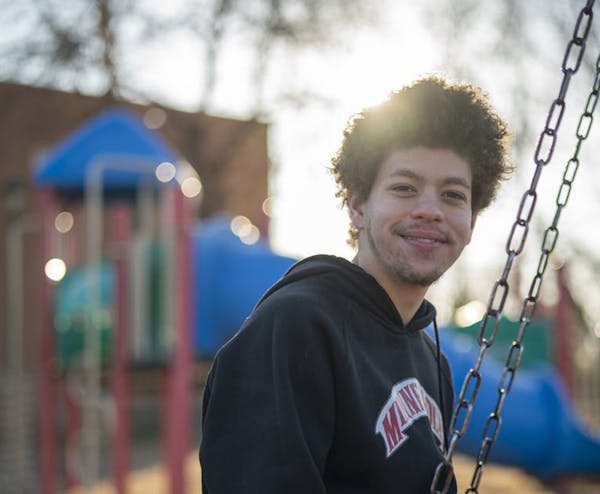Direct assistance to businesses hurt by the pandemic, temporary breaks in taxes and fees and other aid to Minnesotans are under consideration by Gov. Tim Walz and state lawmakers aiming for quick relief as COVID-19 cases rise and the state revives tougher restrictions.
Both Walz, the Democratic governor, and a group of House Republicans spelled out proposals on Tuesday, suggesting a bipartisan sense of urgency. Majority House Democrats signed onto Walz's plan, while Republicans who control the state Senate also signaled interest in a compromise measure.
"It feels like there's bipartisan momentum," Walz said at a news conference outside the Nook, a St. Paul hamburger joint. He said he hopes to call legislators back into special session as soon as a deal is reached.
Demand for help for businesses is rising after Walz announced new measures last week aimed at curbing the spread of the virus. Gyms, bars and restaurants will remain closed for in-person service through at least mid-December. Industry groups have warned that more businesses would shut down permanently without assistance, but there are few signs that new federal help is imminent.
"Our workers are really struggling," said Janessa Casper, one of the owners of Casper's and Runyon's Nook. "They have rent to pay, mortgages to pay, they have children, they have families, and Christmas is around the corner. It's big. We need help for them."
The proposal from Walz and House Democrats would provide cash to businesses affected by the temporary shutdown, extend unemployment benefits for another 13 weeks and send $500 payments to low-income families enrolled in the state's welfare program.
Walz's plan would also waive some regulatory fees, provide tax credits for food donations and freeze evictions for some businesses.
Walz and others described the proposals as a "bridge" for struggling Minnesotans until the federal government comes up with more assistance. The governor would not provide a total price tag for what he's proposing or specify where all the funding would come from but it's expected to cost hundreds of millions of dollars.
"We need federal action, and while we wait for federal action, Minnesota needs to step up and provide essential relief to people most at risk of suffering the most devastating economic consequences of COVID," said House Majority Leader Ryan Winkler, DFL-Golden Valley.
Current state budget forecasts, last updated in May, call for a $2.4 billion deficit facing Walz and lawmakers in the regular session that will get underway in January. But tax receipts have been higher than anticipated in recent months, and budget forecasters are due to update those projections next week. Walz expressed optimism Tuesday that the update would show improvement in the state's budget situation.
House Republicans outlined their own proposal on a Zoom call: a $400 million grant program for the hardest-hit businesses, a three-month pause in sales tax collections for bars and restaurants serving takeout only, and some temporary license fee relief.
"We hope that starting today the governor and the four caucuses will work together to find agreement quickly on a relief package and get it passed as soon as possible," said Rep. Dave Baker, a Willmar Republican and small-business owner." We are ready to work."
The grant program, which legislators hope could get money into businesses' coffers within weeks of passage, would be funded by the state's $2.4 billion budget reserve.
"We know that our state's budget is currently in a difficult position, but if there ever was a rainy day, this is it," said Rep. Barb Haley, R-Red Wing.
Republican legislators urged Walz to allow gyms and fitness centers to reopen immediately. Unlike the governor's plan, the House GOP would make temporary changes to liquor sales laws sought by bars, restaurants and breweries now sitting on inventory they cannot sell. Such proposals have faced resistance at the State Capitol in the past.
Walz said Monday that he is open to those changes if support exists, but that the complexity of changing liquor laws remains a challenge. He said he focused his plan on proposals he thought he could get passed and implemented quickly.
To become law, an aid package would need support from both the DFL-led House and the GOP-majority Senate. Republicans senators, said to be working on their own plan, signaled Monday that they, too, want to find common ground in the days ahead.
"Senate Republicans are committed to recovering our economy that has been harmed by broad and prolonged shutdowns," Senate Majority Leader Paul Gazelka, R-East Gull Lake, said in a statement. "We will work with anyone to find solutions."
On Tuesday, another top Senate Republican criticized Walz for choosing to "work on a plan only with the House DFL" instead of looping in Republicans earlier.
"I had hoped the governor would have worked with us behind the scenes so we could have presented one unified compromise plan instead of competing proposals, but that will not affect our resolve to work for the best interests of Minnesotans," said GOP Sen. Eric Pratt, chairman of the Senate's Jobs and Economic Growth Committee.
Walz said he exchanged texts with Gazelka on Monday night and that he planned to review the GOP proposals and continue to work with legislators to iron out an agreement.
Torey Van Oot • 651-925-5049

Minnesota State Patrol celebrates diverse new class of troopers

Fired Mpls. teacher accuses management of 'cancerous rot'

Jill Biden rallies women, teachers for the Biden-Harris ticket in Bloomington speeches
Neighbors, city officials at odds over Rochester lake dam

